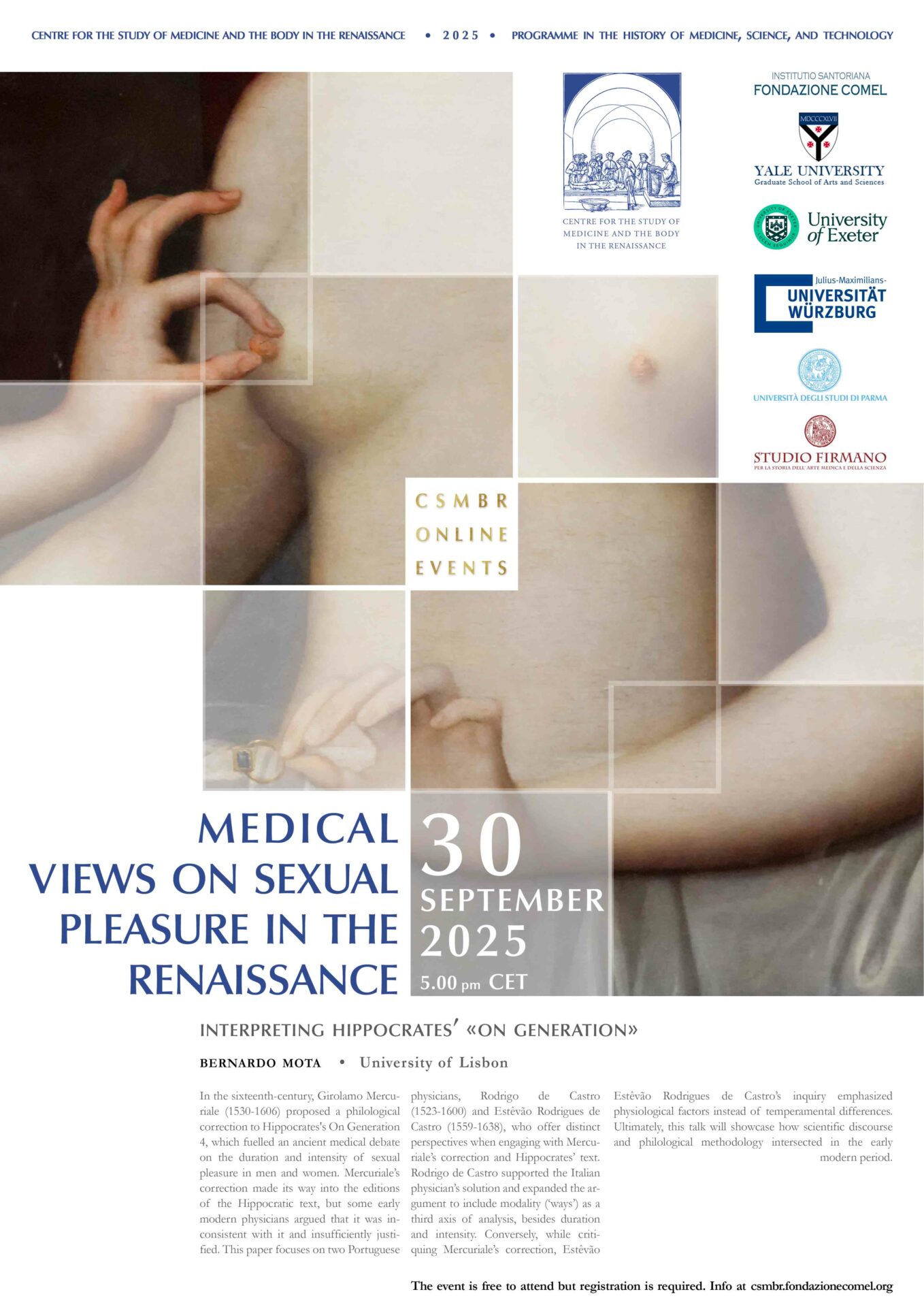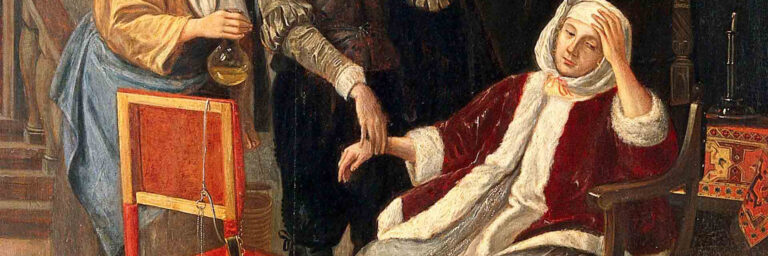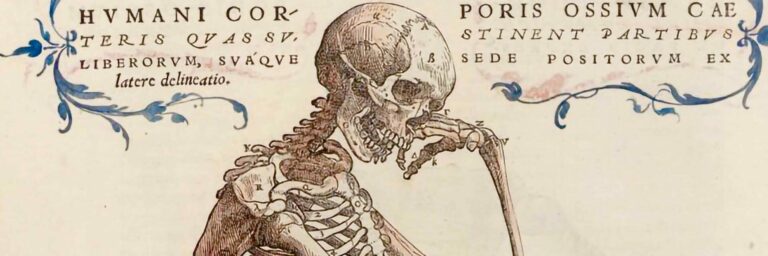Medical Views on Sexual Pleasure
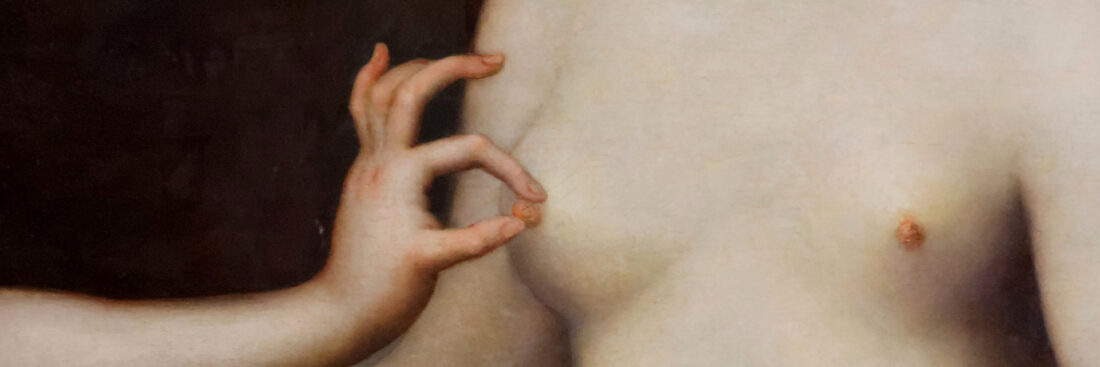
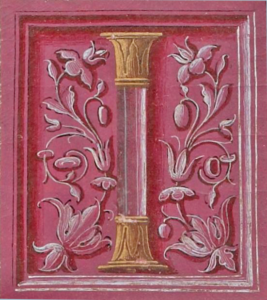
Medical Views
on Sexual Pleasure
in the Renaissance
Interpreting Hippocrates'
«On Generation»
Bernardo Mota
30 September 2025 – 5 PM (CEST)
In the sixteenth century, Girolamo Mercuriale (1530-1606) proposed a philological correction to Hippocrates’s On Generation 4, which fuelled an ancient medical debate on the duration and intensity of sexual pleasure in men and women.
Mercuriale’s correction made its way into the editions of the Hippocratic text, but some early modern physicians argued that it was inconsistent with it and insufficiently justified.
This talk focuses on two Portuguese physicians, Rodrigo de Castro (1523-1600) and Estêvão Rodrigues de Castro (1559-1638), who offer distinct perspectives when engaging with Mercuriale’s correction and Hippocrates’ text.
Rodrigo de Castro supported the Italian physician’s solution and expanded the argument to include modality (‘ways’) as a third axis of analysis, besides duration and intensity. Conversely, while critiquing Mercuriale’s correction, Estêvão Rodrigues de Castro’s inquiry emphasized physiological factors instead of temperamental differences.
Ultimately, this talk will showcase how scientific discourse and philological methodology intersected in the early modern period.
About the Speaker ...
Bernardo Mota is Full Professor of Classics at the School of Humanities, University of Lisbon.
He holds a PhD from the University of Lisbon (2008) with “Agregação”, and was Humboldt Fellow at the Technische Universität Berlin (2009–2011). His research focuses on ancient scientific texts, Euclidean optics, Aristotelianism, and early modern medicine. He co-led the FCT-funded project Rodericus a Castro Lusitanus and the Ancient Medical Tradition about Gynaecology and Embryology (PTDC/FER-HFC/31187/2017). He is a member of the EPISTEME research group on Portuguese early modern science.



